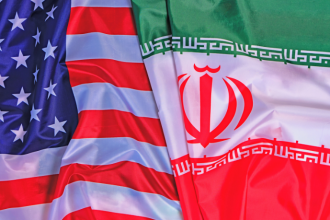On July 5, 2025, Elon Musk announced the creation of a new political organization known as the America Party. This move marks a significant shift in the American political landscape, as Musk distances himself from former ally President Donald Trump. The announcement came in response to Musk’s opposition to a recently passed sweeping fiscal and spending bill widely criticized for its expansive budget and long-term economic impact. Previously a financial supporter of Trump and a participant in his administration, Musk now positions himself as a critic of what he deems reckless fiscal policy threatening the nation’s economic stability. The emergence of the America Party signals Musk’s intent to challenge the established political order and provide an alternative voice for disillusioned voters.
Elon Musk used social media platforms to share that the America Party aims to represent the approximately 80 percent of voters who feel sidelined by the existing two-party system. Musk condemned the current political framework as a “one-party system” lacking true democratic representation and vowed to restore freedom and choice to the American people. The announcement was bolstered by a survey involving over a million respondents, with a clear majority expressing support for the creation of a new political entity. This broad base of potential support underscores the widespread frustration many Americans feel towards the conventional political duopoly and their openness to fresh political alternatives.
The America Party’s platform is built around several core principles including aggressive reduction of the federal deficit, modernization of the military with cutting-edge artificial intelligence technologies, and deregulation of key economic sectors. The party also champions the defense of Second Amendment rights and embraces innovative financial instruments such as Bitcoin. Additionally, freedom of speech and pro-natalist policies are featured prominently in the party’s agenda. Despite the ambitious platform, the absence of an experienced political leader and a well-established party structure has raised questions about the America Party’s potential effectiveness and sustainability in the upcoming election cycles.
President Donald Trump quickly responded to Musk’s political venture, dismissing the America Party as a “ridiculous” idea. Trump warned that introducing a third major political faction could lead to widespread chaos and fragmentation in an already divided nation. He publicly criticized Musk’s recent behavior and questioned the timing and rationale behind the new party’s launch. The rivalry between Musk and Trump has become emblematic of the current intense political polarization gripping the United States, highlighting deep divisions within conservative ranks and the broader electorate.
The announcement of the America Party also sent ripples through financial markets. Tesla’s stock price dropped sharply following Musk’s declaration, reflecting investor concerns about Musk’s focus and the potential distraction from his corporate responsibilities. Financial firms, including prominent investment groups, delayed product launches tied to Tesla shares, citing uncertainty around Musk’s political ambitions. This market reaction illustrates the delicate balance Musk must maintain between his business empire and political aspirations as he ventures into uncharted political territory.
Political analysts emphasize the formidable challenges facing any new political party in the United States. The nation’s electoral system, which favors a winner-take-all approach, alongside stringent state-level registration requirements, create significant barriers to entry for third parties. While Musk’s personal wealth and media presence offer some advantage, building a grassroots political movement and securing broad voter support remains a complex and uncertain endeavor. The America Party’s long-term viability will depend on its ability to navigate these institutional hurdles and articulate a compelling vision that resonates with voters.
Public opinion on the America Party remains divided. Supporters view the party as a much-needed disruption to the entrenched political establishment and an opportunity for innovation in governance. Critics, however, fear that the new party could splinter conservative voters, inadvertently strengthening the Democratic Party’s dominance. The lack of a clear presidential candidate and a fully fleshed-out platform complicates efforts to establish a coherent political identity. This ambiguity may hamper the America Party’s efforts to gain traction in the fast-approaching election season.
In conclusion, Elon Musk’s establishment of the America Party represents a daring attempt to transform the political dynamics of the United States. Although the initiative has energized certain segments of the electorate eager for change, it confronts substantial obstacles that could limit its immediate impact. The future of the America Party hinges on Musk’s ability to overcome political, organizational, and public perception challenges and to build a sustainable political movement capable of competing within the country’s rigid two-party framework. This development adds a new layer of complexity to American politics as the nation approaches critical electoral contests.









